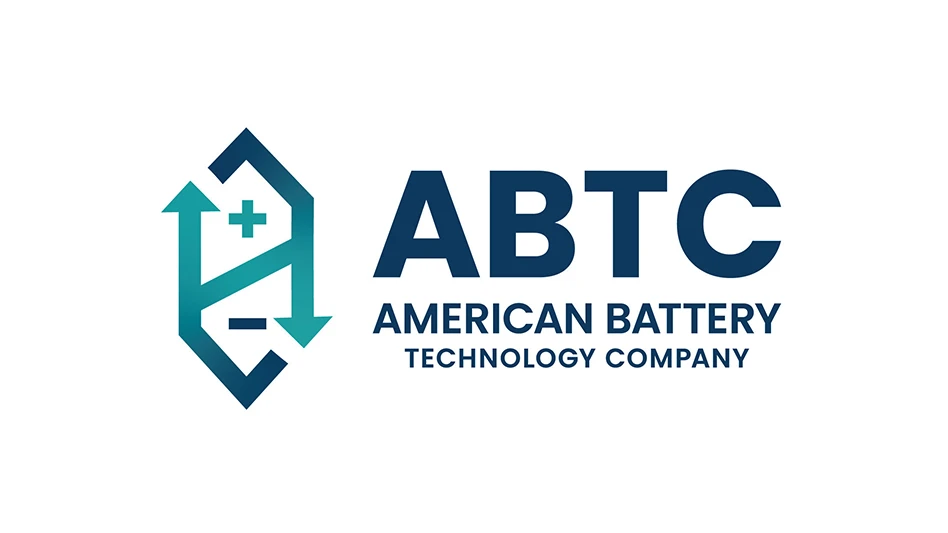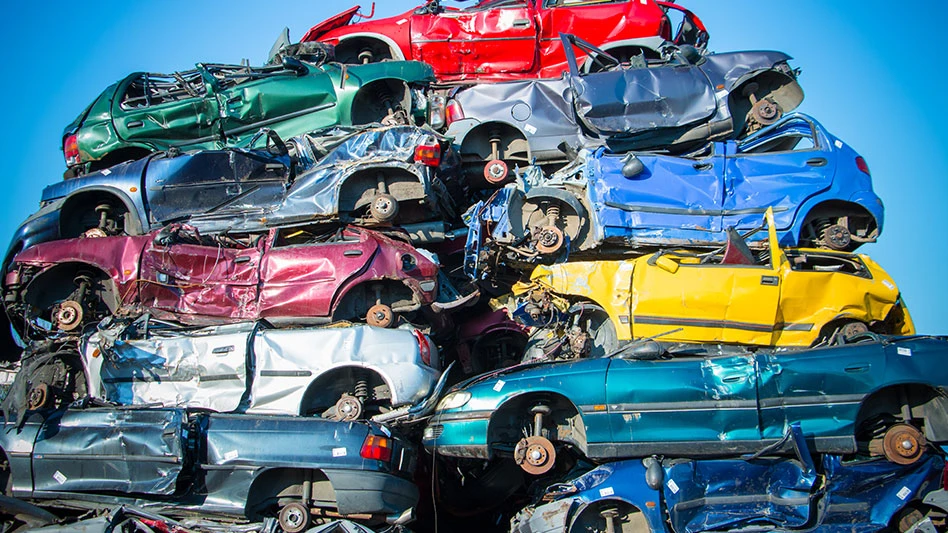
John Zubick Ltd.

Some metallic critters pop above the hedges that line the John Zubick Ltd. scrap yard in London, Ontario: a praying mantis, an ant and a bee to name a few of them.
Matt Zubick, manager at John Zubick Ltd., calls these the “welded wonders” of the family-owned scrap yard. About a decade ago, Zubick wanted to beautify the scrap yard to be a better neighbor in the community.
“No one wants to look at a stereotypical ‘junkyard,’” he says.
Zubick partnered with London-based Fanshawe College and invited its second-year fine arts sculpture students to construct sculptures at the yard. Zubick says the company provided the students with scrap for the sculptures as well as safety gear. In return, the company got to keep the sculptures at the end of the semester.
”Getting your name out there in a positive way has value … sometimes it’s just the value of goodwill.” – Kevin Gershowitz, Gershow Recycling
The partnership started in 2004 and continued for about 10 years. Most years, Zubick says a handful of art students came to the John Zubick Ltd. scrap yard for the sculpture class—provided the weather was favorable. Each group would construct three to four sculptures on the property during a semester.
While some sculptures fell apart over the years, Zubick says many of them have held up well. The company has placed them on pedestals to display to the community. Today, about 20 sculptures help to beautify the company’s 24-acre property. Zubick adds that the praying mantis is his personal favorite.
Projects such as this and other community relations efforts help John Zubick Ltd. to be “good neighbors.” Zubick says there’s no “direct payback” for community relations, but he notices the positive effect it has had for the business.
“You do notice people coming into your yard,” he says. “People have come in just to look at our statues. You’ve gone from being an eyesore to almost a tourist attraction. And that’s got to be beneficial.”

Reasons for community relations
Many other scrap yards also have experienced the intangible rewards community relations offers. Gershow Recycling, Medford, New York, participates in countless community events and finds many ways to give back to its community on Long Island, New York. Some of those efforts in recent years include donating wrecked cars for anti-drunk and -distracted driving events, providing turkeys to families in need at Thanksgiving and inviting local high school robotics teams to visit its facilities to gather materials.
Gershow Recycling repeats many of its charity and community events every year, including its firefighter training event.
“We let the fire departments use our cars for training events,” says Kevin Gershowitz, president of Gershow Recycling. “Just like anything else in life, you’ve got to practice. And if you’re not practicing on getting a person out of a vehicle that’s mangled, practicing in that real-life situation could be life or death. So, us allowing these fire departments to practice on our cars makes a big difference.”
Zubick, who also serves on the board of directors for the Canadian Association of Recycling Industries (CARI), Ajax, Ontario, says one of CARI’s members recently decided to help two kids who were in need in his community. He says a Pontiac Parisienne was up for auction to raise money for the children, who lost their parents in an accident. Bob Bevins of Bulldog Metals, Red Deer, Alberta, purchased the classic car for $20,000, and then he gifted the car back to the two kids to keep.
“That was a huge, emotional moment for the community,” Zubick says of Bevins’ action. “That, to me, epitomizes what we should be doing as scrap yards.”
Gershowitz adds that cost should never deter scrap yards from giving back to the communities they call their homes.
“It’s not about the cost,” he says. “We look at it as we’re taking a high school student and opening their eyes to what they look at as junk and it opens their eyes to all that is recycling. It’s a wake-up call.”
He says it’s also what businesses should do.
“Getting your name out there in a positive way has value,” Gershowitz adds. “You may not see the value today—you may not get an ounce of business out of it for 10 years. It’s not about getting the business out of it today. But there is value to it. Sometimes it’s just the value of goodwill.”
Addressing complaints and stigmas
Scrap yards also should connect with community members regarding complaints about their businesses. Regardless of how busy a scrap yard might be, Zubick says complaints needs to become the scrap yard’s priority.
“You have to deal with [complaints] right away,” he says. “If I had a complaint somewhere, I would want it addressed right away, and I would want it addressed in a way that put my mind at ease. You need to treat [complaints about your business] exactly the same.”
For instance, Zubick says a few years ago he immediately took time to meet with a woman who expressed concerns about noise levels at the scrap yard. Zubick visited the woman at her home, which was directly behind the scrap yard, to discuss her concerns and to get an idea of the problem. He and his team then performed sound studies from her property using a noise dosimeter to determine the extent of the problem. The company quickly learned that the woman had a valid concern.
“The sound was not coming from our regular processes, but it was a piece of mobile equipment doing a cut up every morning,” Zubick says. “It was a simple matter of changing our procedures, and that was fixed.”
Sponsored Content
Still relying on manual sorters?
Let AI do the heavy lifting. Waste Robotics delivers reliable, high-performance robots tailored for complex waste streams. They require minimal maintenance, are easy to operate, and are designed to boost your recovery rates. Smarter sorting starts with the right partner. Waste Expo Booth #1969 & REMA #2843
Click here to see our robots in action!Sometimes the complaints community members express aren’t valid, but Zubick adds that even these must be addressed.
“People view scrap yards as an eyesore,” he says. “We are pushing against that to show them we are professional recyclers and members of this community who support them and care about them.”
Gershowitz says he uses tours as a way to educate people on the value scrap yards offer the community. Whenever a group tours one of Gershow’s facilities, he says the company will provide background on the scrap metal recycling industry.
When students tour a Gershow Recycling facility, Gershowitz emphasizes to them that “junk” is like a swear word. “I tell them junk is a four-letter word—we don’t use curse words. We are a scrap metal processing facility, not a junkyard. That message especially sinks in with students.”
Gershowitz adds that it’s every scrap yard owners’ job to promote the industry and the good that it offers.
“You need to be politically active and promoting the industry,” he says. “Our industry gets a bad reputation because not everyone is out there telling people the good that we do. The average citizen thinks of curbside recycling; they do not think of the scrap metal industry. It’s up to us to explain to them that steel is the most recycled item in the world and that the scrap yard is just as important as any other industry.”
Get curated news on YOUR industry.
Enter your email to receive our newsletters.

Explore the February 2019 Issue
Check out more from this issue and find your next story to read.
Latest from Recycling Today
- Circular by Shapiro releases "5 for Five" sustainability series
- Graphic Packaging set to close Ohio CRB facility
- Ameripen voices support for Maryland EPR bill
- Matalco to close Canton, Ohio, plant
- Maryland county expands curbside recycling to include electronics
- California EPS ban will be enforced
- YKK AP America introduces BetterBillet
- Fresh Perspective: Cameron Keefe








